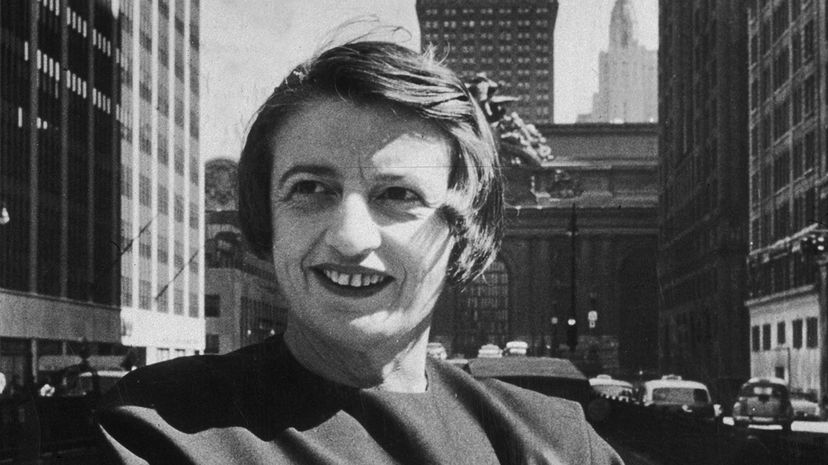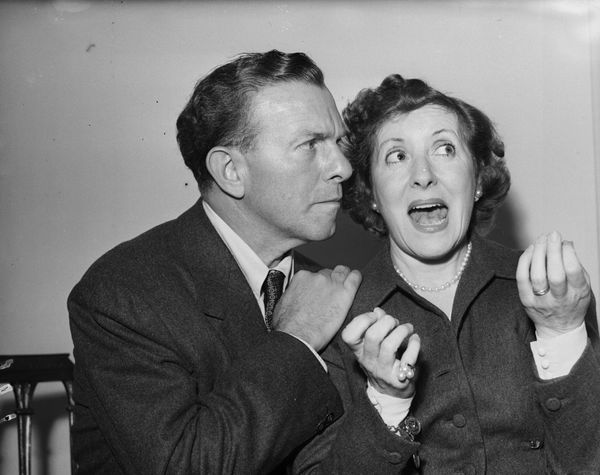
We all should be a lot more selfish. That was one of author Ayn (rhymes with "mine") Rand's credos. She was also famous for saying we are not, after all, our brother's keeper. And money isn't the root of all evil — but altruism might be. These brief insights into Rand's thoughts and personality make it easy to see why she is either reviled or worshipped by so many. In a recent episode of Part-Time Genius, co-hosts Will Pearson and Mangesh (Mango) Hattikudur look at why Ayn Rand is a political rock star.
Will and Mango point out that Rand's fans include Alan Greenspan, the band Rush and Billie Jean King, not to mention Paul Ryan and members of the Tea Party movement. Her books often appear on readers' lists of the ones that have most influenced them.
Advertisement
Rand, who died in 1982, is famous for writing the best-selling novels "The Fountainhead" and "Atlas Shrugged." Both are intellectual and political tomes. She also created a philosophy she dubbed "objectivism," which as Will notes, says, "Man is a heroic being whose own happiness is the moral purpose of his life, with productive achievement as his noblest activity and reason as his only absolute. Selfish behavior is moral behavior."
Rand was born Alisa Rosenbaum in 1905 in St. Petersburg, Russia to a wealthy family that lost everything in the Russian Revolution. As a young woman she came to the United States, where she eventually made a name as a novelist, philosopher, playwright and screenwriter. Her in-your-face words and actions pleased some, but made others squirm.
Rand preached that the only goal of government was to protect individual rights. But she did not like to be classified as a conservative or a libertarian. She championed atheism and abortion rights, and even had an open marriage. Ridiculously sure of her writing, she refused to be edited. Ridiculously sure of her ideas, she also made a lot of divisive statements.
"In her address to the graduating class at West Point in the '70s, she said, of Native Americans, 'They had no right to a country merely because they were born here and then acted as savages. The white man did not conquer this country,'" Mango says.
Later, Rand defended this statement, saying whenever a superior technology meets an inferior one, that society has the right to prevail. She insisted this was not a racist argument.
For a while, with the birth of the Tea Party movement, conservatives often cited Rand, and even characters in her novels, because of their pro-capitalist, limited-government views. But it was difficult to ignore her stances on religion, abortion and marriage, nor to reject her lack of compassion. So many instead began simply saying Rand had had a positive influence on them because she got them thinking about the world.
And that may be why Rand and her novels continue to resonate with people over the decades. While scholars and critics in general never took her that seriously, " ... ignoring her clearly is a mistake," says Mango. "Millions of people intensely identify with her stories ... She got a whole world of people to rethink their values, and also maybe believe in themselves."
Learn more about Ayn Rand in "A Companion to Ayn Rand (Blackwell Companions to Philosophy)" by Allan Gotthelf and Gregory Salmieri. HowStuffWorks picks related titles based on books we think you'll like. Should you choose to buy one, we'll receive a portion of the sale.
Advertisement


